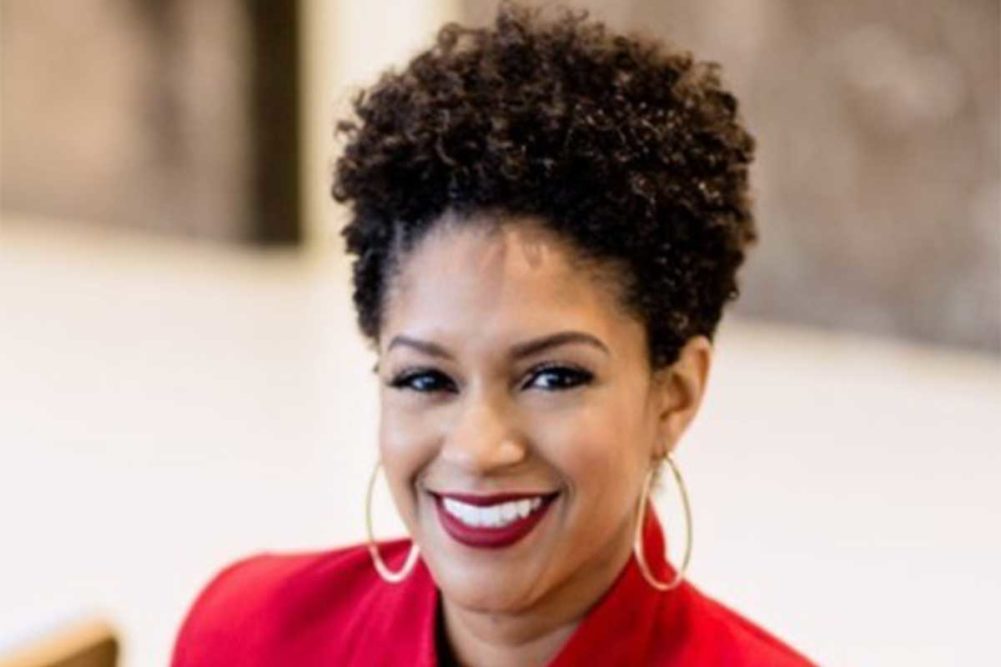GLADSTONE, MO. — About six years ago Michael DiLeonardo expected to be asked for his opinion before the Coca-Cola Co. hired a new global vice president of marketing for his account team. He never was. Eventually he received a message that the company had hired Tanika Cabral for the position.
“This just fell out of the sky,” he said. “Of course, I didn’t know who Tanika was. I go on my computer and pull her up. I go, ‘Ah, it all makes sense now – female, Black, didn’t want to bring her into the typical interview process.’”
Mr. DiLeonardo said he expected Ms. Cabral to stay at Coca-Cola for a couple years and move on. He was wrong. As 2021 nears its end, the two continue to work together and appeared together in a Dec. 13 webinar put on by Gladstone-based Center for Food Integrity.
“What really happened was, you get to know somebody because you work so many hours together, and all of a sudden you’re like, ‘Wow, she’s pretty smart, and she knows what she’s talking about. In that customer meeting she was really rocking it, and she’s adding value,’” said Mr. DiLeonardo, now vice president of sales for Atlanta-based Coca-Cola.
Ms. Cabral, now senior vice president of customer leadership, remembered her introduction to her new Coca-Cola account team, which had not been consulted before the hire.
“When I met the team, probably a few weeks in, I could feel something,” she said. “There was something there. The warm welcome that I had hoped for, I didn’t necessarily get that.”
She said it was not the first time new work colleagues may have thought of her as a diversity hire. She added first impressions may have the same effect on other perceived hires.
“Listen, it’s not just the diversity hire, right?” Ms. Cabral said. “It could be a type of hire where you feel like the person came in, and they didn’t have the credibility or experience. There is judgment happening. It could be the gold-old-boy network, right, where someone is hired, and you’re thinking, ‘Oh, that’s just one of the cronies.’”
New hires who perceive they are not accepted may become discouraged and not engage as much, Ms. Cabral said.
“But I am the opposite in that way,” she said. “I don’t tend to withdraw. I tend to lean in more, and that’s what I did.”
She began walking into Mr. DiLeonardo’s office and having conversations with him.
“He didn’t know me,” Ms. Cabral said. “He got to know me, and he was open to getting to know me.”
The two eventually addressed controversial issues, including the “Black lives matter” movement. Mr. DiLeonardo said he had trouble understanding it, believing all lives matter. Ms. Cabral compared it to different forms of cancer. Focusing on breast cancer does not mean you care little about melanoma.
“Here’s what I know about Michael D.,” Ms. Cabral said. “He is interested in understanding my perspective. He is interested in understanding a life experience that led me to believe what I believe. He wants to understand that, and that is all I’ve asked him of him in our relationship.”
Mr. DiLeonardo once had Ms. Cabral sit in on Zoom interviews for a Coca-Cola sales position. He already had someone in mind, a man who reminded Mr. DiLeonardo of himself in his younger days. That interview went well. Later they interviewed a Black woman with an afro and purple earrings hanging to her shoulders.
“I thought she had purple streaks in her hair,” Mr. DiLeonardo said.
“She looked gorgeous,” Ms. Cabral said.
Mr. DiLeonardo said he wondered if the woman was the right fit for the section of the country she would work in, but the Zoom interview went well, so well that Mr. DiLeonardo flew out to see the woman in person. She got the job.
“It was such a learning (experience) for me because people probably will say Michael D. for the most part will hire people in a certain mold: athletic, high-chargers, people that remind you of yourself a little, whether it’s a male or a female,” he said.
Fear of failure may keep bosses from taking hiring risks, he said.
“Your reputation is on the line,” Mr. DiLeonardo said. “It takes some risks to bring in someone different. I’ll tell you this all the time, it was one of the greatest lessons I’ve had in my career.”






